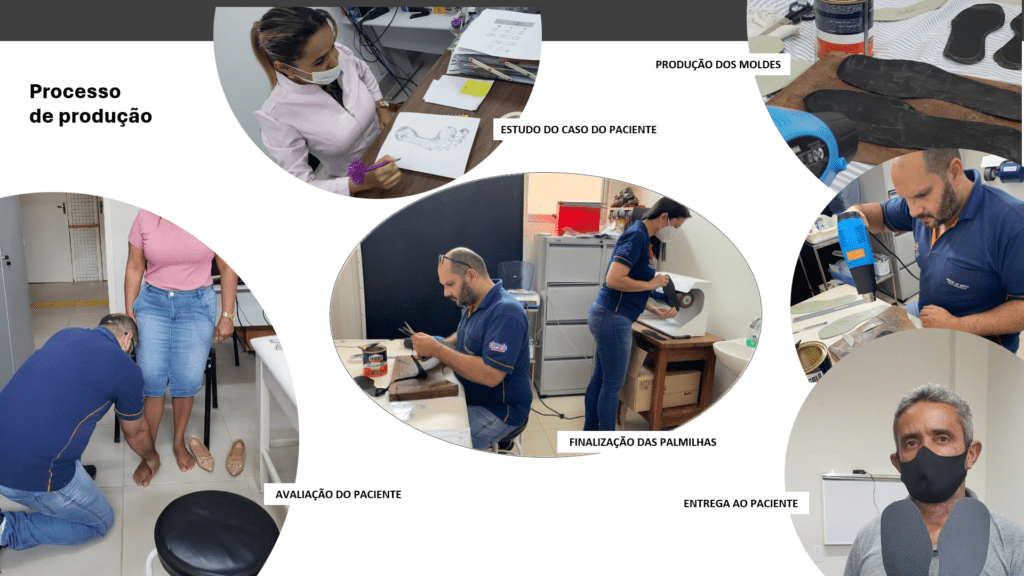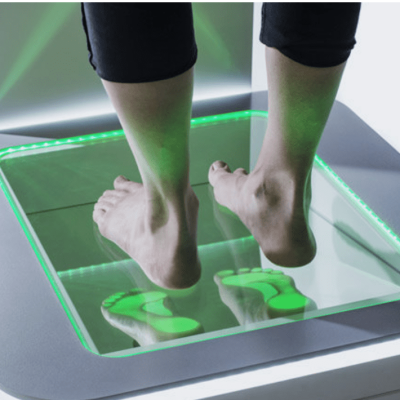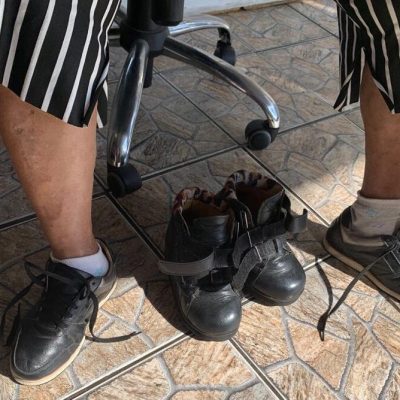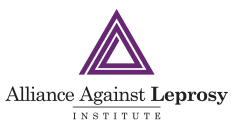FeetHansen

The AAL Institute’s orthopedic workshops for making insoles and fitting shoes (Sapatarias AAL) serve people who have or have had Hansen’s Disease and need custom-made insoles and shoe fittings due to the sequelae caused by Hansen’s Disease, completely free of charge.
The challenges faced by people affected by Hansen’s Disease are numerous and getting around is one of them. Changes in sensitivity and muscle strength in the feet due to nerve dysfunctions can compromise common tasks such as walking, climbing, or descending stairs, and there is also a risk of injury to the area. In this scenario, wearing conventional footwear is not always possible. In order to offer a better quality of life, the AAL Institute aims to set up orthopedic workshops to make insoles and adapt shoes in the main endemic cities in Brazil.
FeetHansen was first implemented in the state of Mato Grosso through a Technical Cooperation Agreement with the Mato Grosso State Health Department (SES-MT), as part of the “Mato Grosso in Networks: Comprehensive Hansen’s Disease Care” project. The initiative took its first steps in 2020, to structure the comprehensive care network for Hansen’s Disease based on innovative and permanent strategies, including the implementation of three orthopedic workshops for making insoles and fitting shoes to assist people who have or have had Hansen’s Disease and need custom-made insoles and fitting shoes due to the sequelae caused by Hansen’s Disease.
Due to the COVID pandemic, the activities began in March 2022 and today the action is in full swing, made possible with funds transferred by the International Company of the Order of Malta against Hansen’s Disease (CIOMAL), with which the AAL Institute has a solid partnership. Three municipalities in Mato Grosso – Alta Floresta, Tangará da Serra and Barra do Garças – had shoe stores set up and their health professionals trained by technical consultants from the AAL Institute.
Susilene Nardi, Technical Director of the AAL Institute and consultant for this initiative, is an occupational therapist with a doctorate in Health Sciences. The AAL Institute initially provides theoretical and practical training to the professionals previously selected by the municipality’s manager, ensuring that the specialized workshop to be set up works efficiently. The AAL Institute provides equipment on loan and specific consumables so that the trained professionals can begin their work after the training. In addition to making human resources available to develop the service, it is also up to the municipal manager to allocate the location where the workshop will be set up and all the organizational infrastructure to make the service work.
“The 12-hour theoretical training is given by me remotely. There are another 8 hours taught by a physiotherapist who works in the region and has practical experience. He travels to the municipality to help install the equipment and carries out the practical part of the training. In this way, the local professionals produce the insoles and shoe fittings after a careful assessment of each patient’s lower limbs,” explains Dr. Susilene. André Brito, a physiotherapist who works in Alta Floresta / MT, adds: “The patient is assessed, and a specific insole is made according to their step and plantar ulcers. The results are an improvement in the wounds and pain in the feet and an increase in quality of life, as the patient is able to walk and carry out their daily activities”.
For Dr. Susilene, the focus on quality is one of the hallmarks of the actions that AAL sets out to offer. “Reaching a large audience and losing quality is not the objective, but to offer quality service. To this end, AAL has made a huge contribution to those who have or have had Hansen’s Disease and has had a very positive impact on those it assists.”

The FeetHansen action also includes the production of Digital Shoes. In a study that is unprecedented in the world, the AAL Institute has implemented a modern solution for making shoes entirely made-to-measure, using state-of-the-art technology. These digital shoes are only indicated for patients who cannot adapt to commercial footwear, which represents around 15% of cases with neurological impairment of the feet.
The feet of people affected by Hansen’s Disease are digitally scanned, and the shoes are adapted for each patient, respecting the asymmetries of the feet, and the insoles are 3D printed.
The action promotes a great improvement in the quality of life of the participants, as these shoes promote comfort, better wound healing, gait stability, social acceptability with a reduction in prejudice, as well as being produced quickly and delivered to the patient’s home.
In 2022, the AAL Institute presented the initiative to the international scientific community at the World Hansen’s Disease Congress, held in India, and at the Brazilian Hansen’s Disease Congress, held in Vitória / ES.


To find out how you can set up an orthopedic workshop to make insoles and adapt shoes for people with Hansen’s Disease in your municipality or produce digital shoes, contact the AAL Institute’s management team at [email protected].
